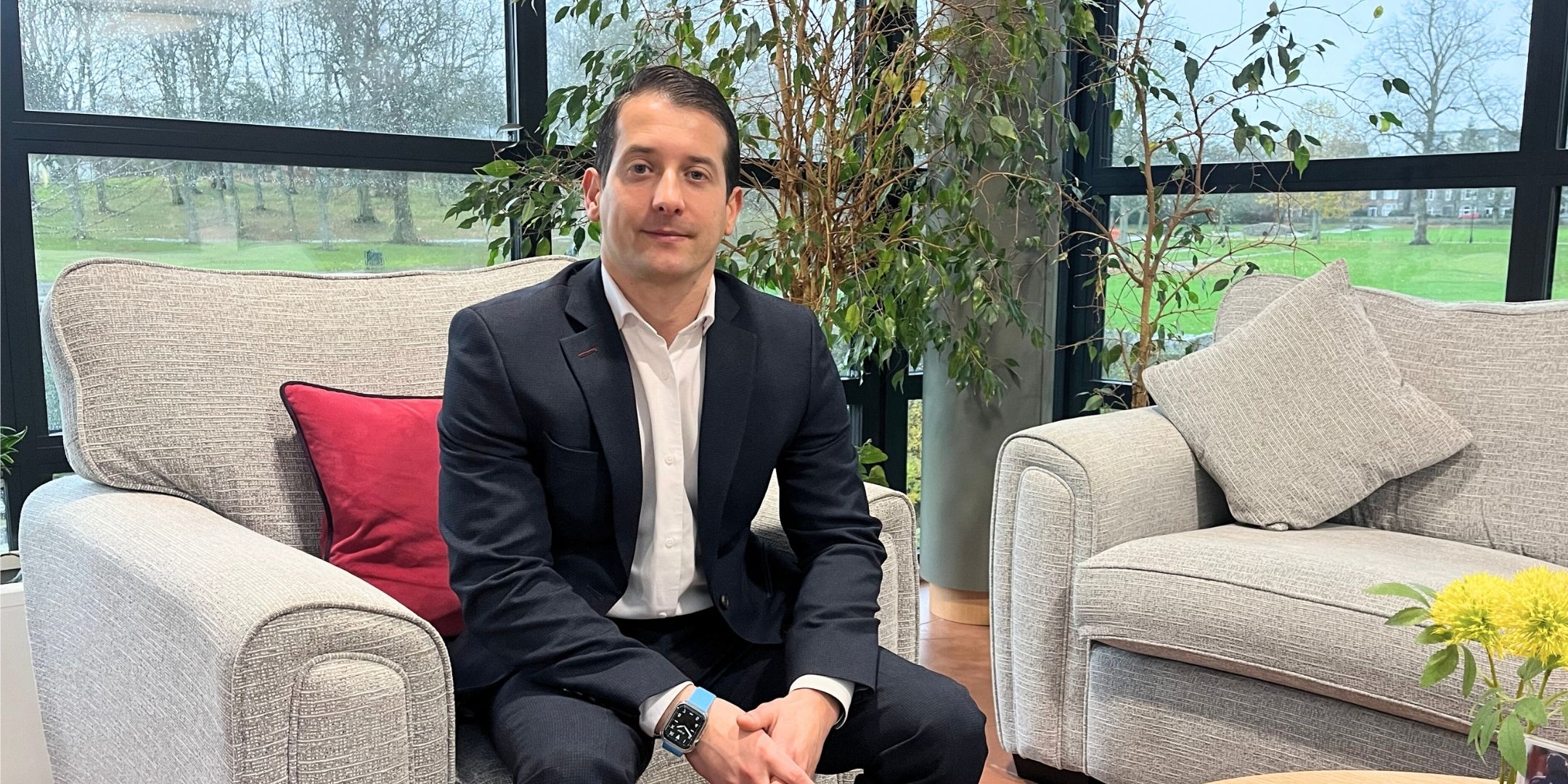Everyone experiences bereavement at some stage in their life and, for some, the grief that follows can be overwhelming. Cruse Scotland Bereavement Support is a national charity that exists to provide compassionate grief and bereavement support across the country, helping people work through the challenges that often accompany the loss of a loved one.
Cruse Scotland offers vital services for individuals navigating bereavement and relies on the compassion of it’s dedicated group of volunteers to deliver counselling, listening and emotional support.
“People come to us for support when they’re struggling to move through the normal process of grief – when they feel stuck” explained Doreen Miller, Cruse Scotland’s Area Manager for the North. “It might be affecting their mental health or day to day life, or they have pushed their grief to one side and now realise they need some help.”
“The support we offer at Cruse Scotland would not be possible without the dedication of all our amazing volunteers who provide our counselling and support services. I’ve said many times – we are nothing without our wonderful volunteers, who give their time for free to make sure people can get the support they need.”
Cruse Scotland’s North Area spans Grampian, Highlands and Islands, where over 40 active volunteers are currently supporting individuals through their grieving process. The North is staffed by Doreen and Helen Donald, co-ordinator based at Rose Street, Aberdeen.
“Our volunteers have different skills and expertise, including counsellors, Children and Young Persons supporters, Early Support and ICI volunteers and counselling students on placement” Doreen said. “The majority are fully qualified counsellors, but we also have skilled listeners and advanced skilled listeners, including placement students training towards their diplomas and degrees.”
“Cruse Scotland offers several models of support including Early Support sessions – by phone or occasionally in person – for a recent bereavement and for a bereavement over 6 months, no matter how long ago, we offer 6 sessions over six weeks in person, online or by phone. Our volunteers are vital in providing these free services.”

Understanding and Normalising Grief
Elaine Reid, a volunteer counsellor and trainer with Cruse Scotland, understands the profound effect of grief -and how transformative the right support can be. “Grief is isolating,” she said. “Some people just don’t like to talk about it, or feel like they can’t. That can become a very lonely place to be. At Cruse Scotland, you get to speak without judgment or expectation.”
Elaine explained that while grief is universal, the way people experience it is deeply personal and can often be misunderstood.
“There are still so many people who don’t have support in their families or friend groups. Society still tends to treat grief as something with an expiry date – as if you should be ‘done’ grieving after a certain time. But that’s not how it works. And if you don’t have people around you who are comfortable talking about it, or they think it’s time you moved on, then you need somewhere safe to go. That’s what Cruse Scotland offers – someone who will listen, without telling you how you should feel.”
Through her work, Elaine has seen first-hand the many forms grief can take. “For some, it shows up as things like anxiety, exhaustion, even brain fog – it can be really alarming for people who don’t realise these are normal parts of the grieving process. When someone comes to Cruse Scotland and we’re able to say, ‘What you’re feeling is valid, and you’re not alone,’ you can see the relief. Being able to normalise those experiences is incredibly important. That moment of recognition, when someone realises it’s okay to feel the way they do, can be a turning point.”
Elaine began volunteering over ten years ago and returned after completing her counselling MSc. “It’s been incredibly enriching,” she said. “There’s a strong community of volunteers in Aberdeen. The support we get – ongoing training, supervision, and develop-ment means we can grow as practitioners while supporting others.”
“Volunteers can learn so much from one another, and we often bring our own personal experiences into the support we offer,” Elaine added. “I remember a training session where someone shared how alone they felt after losing their dad – and how that experience motivated them to volunteer so no one else would have to feel the same. That really stayed with me. I think a big part of what we do is about giving back – offering support that comes from empathy, understanding, and lived experience.”
This sentiment is echoed by Lorna Knott who joined Cruse Scotland in 2024 as a Practice Placement Student. “I received no help or support when I tragically lost my mother at the age of 16,” shared Lorna. “I was told by family members not to mention her in case I upset my dad and was expected to just move on. That was 45 years ago, and things have changed so much now.”
That early silence around grief stayed with Lorna into adulthood. “After I eventually received counselling, it helped me understand my grief. That experience led me to train as a therapist – to help others manage and cope better than I was able to at the time.”
Although Lorna has spent many years working in private practice as a CBT therapist, she always hoped to give back through a charity like Cruse Scotland. “As a student studying late in life as a person centred counsellor, I was delighted when Cruse Scotland accepted me on placement,” she said.
“The support and ongoing training I have received have all been exceptional,” she said. “I feel I’m part of something that is of real benefit to others.”
“Being part of something that brings care and support to others is also helping me cope with my own losses,” she reflected. “I’ve lost many people over the years. Being a grief counsellor helps me understand the bewilderment, fear and devastation. It helps me learn more about myself and navigate those intense feelings of loss.”

A Safe Space for All Ages
Trisha Hird, who has volunteered with Cruse Scotland since 2009, also sees the unique value volunteers bring, particularly when working with children and young people. “Sometimes young people are afraid to talk to their families about loss because they don’t want to upset them further,” she explained. “Cruse Scotland gives them a safe space that’s just for them – somewhere they can express what they’re feeling without worrying about how others will react.”
With children, the approach is carefully tailored. “We don’t just sit and talk – it’s a different kind of support than adults receive,” Trisha said. “We use crafts, painting, games – anything that helps them feel comfortable. If a child is engaged in an activity, they’re often more likely to open up and share what’s really going on inside.”
The impact of this support is tangible. “You can really see the change,” she said. “Sometimes it’s in their behaviour – they might be more settled, more communicative. Other times it’s in how they talk about their feelings, using words they didn’t have before to describe what’s happened. Parents often tell us that things have improved at home or at school.”
Trisha emphasised that involving children in the grieving process is crucial.
“In the past, children were often left out – they weren’t brought to funerals, they weren’t asked how they were feeling. But we now “understand how important it is to include them, to give them the tools to process what’s happened in a way that makes sense for their age and understanding.”
“It’s an honour and a privilege to volunteer with Cruse Scotland” said Trisha. “It feels like part of our human response to help someone through a dark place. I’ve lost people too. I know what that’s like. Being able to use that experience to support others is incredibly meaningful.”
Community and Support for Volunteers
Cruse Scotland is deeply committed to creating a positive and meaningful experience for its volunteers. “We build close relationships with them,” said Doreen. “We know their strengths and availability, so we can match them well with clients. We want them to feel valued and supported every step of the way.”
That commitment extends far beyond initial training. Volunteers benefit from regular online gatherings, Continued Professional Development (CPD) opportunities, and monthly ‘Coffee Connect’ meetings which create space for learning, reflection, and community. “Sometimes we’ll bring in external speakers for CPD, and the volunteers really enjoy that,” Doreen said. “They’re engaged and turn up in good numbers – it’s great to see that enthusiasm.”
Recognition and appreciation are also an essential part of Cruse Scotland’s culture.
“We value our volunteers year-round, and we are proud to celebrate their vital contributions during volunteer’s week. We will be hosting two events this year, one in Aberdeen for our City and Shire volunteers and the other in Nairn for our Moray and Highland volunteers,” Doreen added. “We want to make sure our volunteers feel appreciated for all the incredible work they do.”
“We also host a Volunteers Annual Conference each year, usually in September where volunteers and staff gather for keynote speakers, workshops, and our Volunteer Awards (Linda Keay Award) Ceremony.”
“These are always well attended by volunteers as far north as Orkney and south in the Borders.”
The sense of community and connection among volunteers is key. “We really try to make things as simple, stress-free, and inclusive as possible,” Doreen said. “Whether it’s offering support during their first client sessions or making time for check-ins, we want every volunteer to feel like they’re part of something meaningful – and that they’re making a real difference.”
Ultimately, Cruse Scotland exists to ensure that the people they support are not left to navigate grief alone. For Doreen, the evidence of their volunteers’ impact is in every client they help. “We get incredible feedback,” she said. “We see the difference from session one to session six. People walk out lighter, more hopeful. And our volunteers hear that gratitude directly. That’s what makes it all worthwhile.”
Find out more
Cruse Scotland provides compassionate bereavement support through a range of free services designed to help individuals navigate their grief. Their Free Bereavement Helpline (0808 802 6161) offers immediate emotional support and guidance. For those who prefer online communication, GriefChat provides a confidential, web-based chat service connecting people with counsellors. More details about all services and how to access them can be found on Cruse Scotland website at crusescotland.org.uk
This article originally appeared in the June 2025 edition of ACVO News, our monthly digital magazine featuring news , updates and stories from the third sector in Aberdeen. Read all past issues and subscribe at acvo.org.uk/acvo-news





